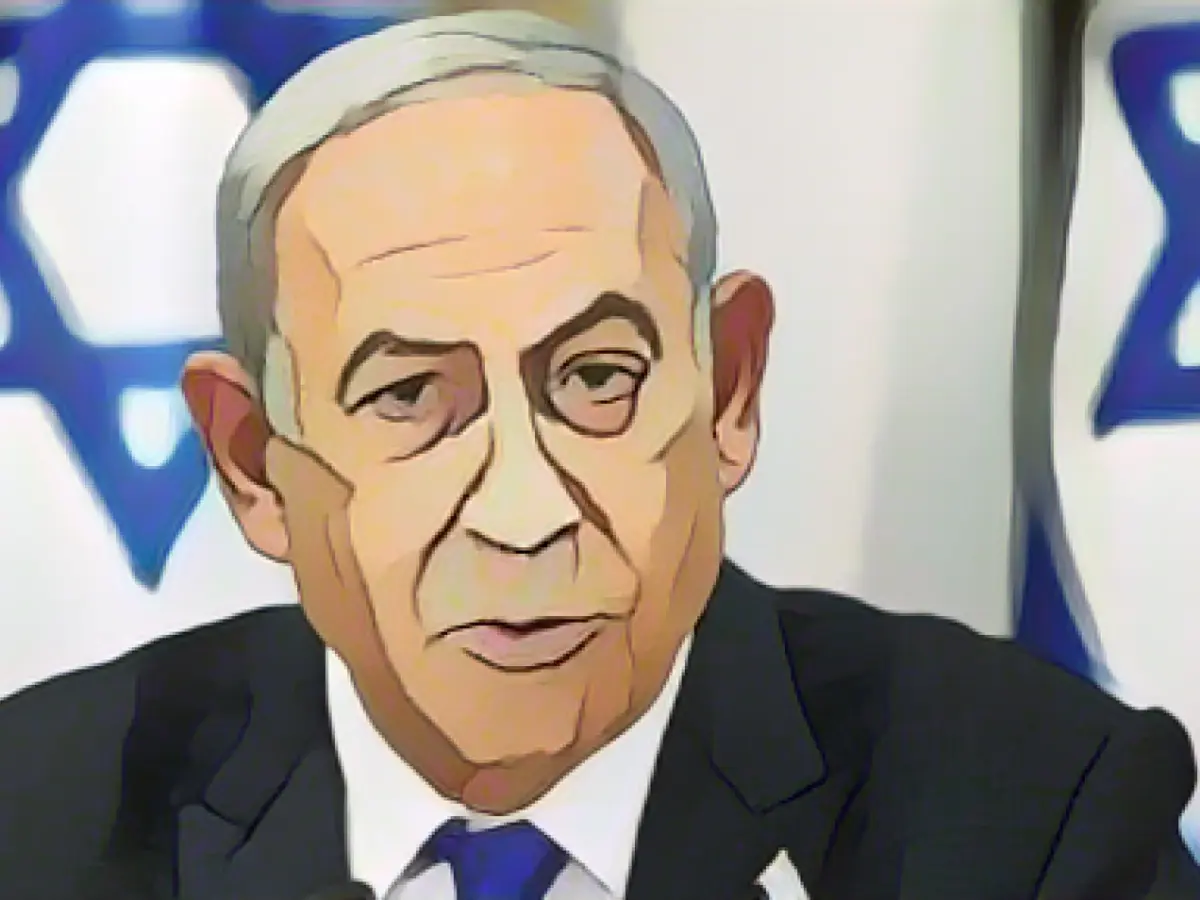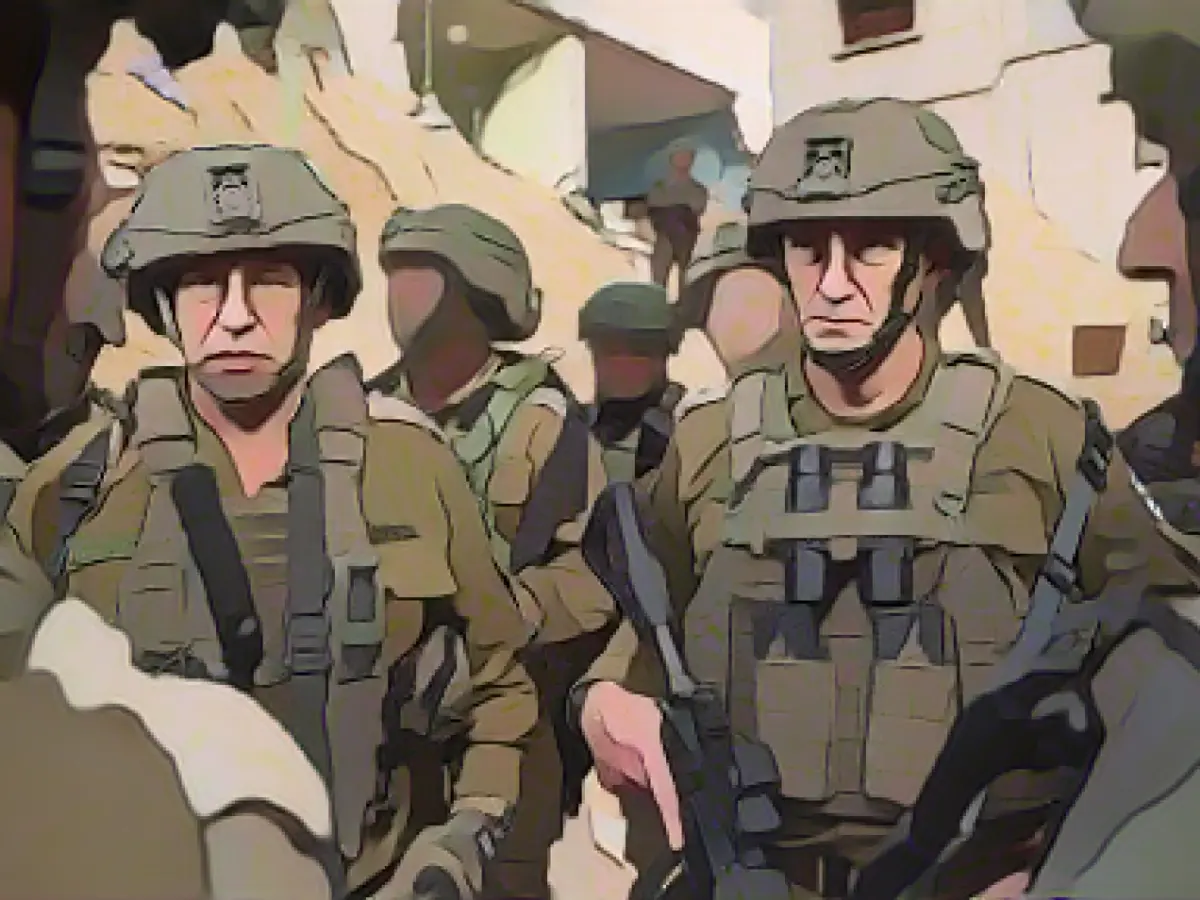Israel's Militancy in Gaza: A Defiant Pursuit Despite International Scrutiny
Israel's military operation in the Gaza Strip, aimed at combatting the Islamist Hamas, has escalated once more, causing renewed alarms on the Israeli side. On Tuesday night, Israeli sirens sounded along the border, a testament to the intensifying conflict. Despite international criticism, Israeli Prime Minister Benjamin Netanyahu articulated his resolve to escalate the struggle against Hamas, highlighting the destruction of the militant group and the demilitarization of Gaza as prerequisites for peace.
Dermer's Washington Visit and U.S. Pressure
According to media reports, Israel's Minister of Strategic Affairs, Ron Dermer, is set to visit Washington for talks on a new phase in the conflict's intensity. Dermer plans to discuss a shift to more targeted operations against Hamas, following a call for Israel to concentrate on precise attacks as a means to reduce civilian casualties. The high number of casualties in Gaza has incurred widespread international condemnation.
Netanyahu Argues for Righteousness in Action
In a response to international criticism, Netanyahu contends that Israel's actions are in full compliance with international law. He reiterates that Israel is doing its utmost to minimize the casualty count, an assertion that contradicts estimates of over 20,600 deaths reported by the Hamas-affiliated health authority. Netanyahu argues that the unjust blaming of Israel for these casualties only serves to embolden other extremist groups worldwide to use human shields as weapons.
Protest and Demand for Peace in the Israeli Parliament
In Israel, Prime Minister Netanyahu faces protests for his actions. During a parliamentary speech, relatives of Israeli hostages demanded immediate action to secure their release from the Gaza Strip. The call for a second ceasefire, intended to facilitate hostage exchanges for Palestinians imprisoned in Israel, was rebuffed by Hamas.
Ceasefire Rejection and Egyptian Mediation Attempts
Despite earlier success in brokering a temporary ceasefire, which allowed for the exchange of 105 hostages for 240 Palestinians, Hamas rejected a new ceasefire proposal drafted by Egypt. The proposed ceasefire would have lasted for at least two weeks, according to Arab media reports. However, calls for re-negotiation of the terms fell on deaf ears.
Netanyahu's Unwavering Stance on Hamas's Demise
In his Wall Street Journal op-ed, Netanyahu outlined his stance on the war, positioning Hamas's destruction, the demilitarization of Gaza, and the de-radicalization of Palestinian society as the three prerequisites for peace between Israel and its Gaza Strip neighbors. Netanyahu also asserted that the demilitarization of the Gaza Strip was an unattainable "pipe dream," as the PA had failed to achieve this goal in the past.
The U.S. and Israel: A Cooperative Partnership in Addressing Gaza's Conflict
In the midst of this conflict, the U.S. and Israel maintain a close partnership. The White House, the State Department, and members of Congress are scheduled to meet with Dermer to discuss the ongoing war and potential post-conflict strategies. Although the precise nature of the talks remains unclear, the U.S. supports a reformed and restructured Palestinian Authority led by Mahmoud Abbas.
The Obama Administration and the Revitalized Palestinian Autority
The Obama administration has put forth a plan to revitalize and restructure the Palestinian Authority (PA), with President Mahmoud Abbas leading the charge. The U.S. aims to give the PA newfound power in Gaza, aiming to restore its influence in the territory. While Netanyahu has initially rejected this plan, Dermer and other Israeli officials have recently talked to their American counterparts about a "reformed" PA.
Israel's Retention of Gaza's Security Control Post-Conflict
Despite the push for greater Palestinian control in Gaza, Israel remains insistent on retaining its security responsibilities in the region. According to Netanyahu's op-ed, the PA's demilitarization of Gaza was an unattainable goal, making Israeli security concerns a top priority. For the foreseeable future, Israel will continue to maintain ultimate control in the region.
War Trigger and Its Consequences
The conflict was ignited by Hamas and other radical groups' attacks on Israeli territory near the Gaza border, resulting in the death of over 1,200 people. Israel responded with a comprehensive aerial assault and ground operations, resulting in the death of over 20,600 people and the injury of over 54,500, according to Hamas-controlled health authority statistics.
Dermer's Washington Discussions
On Tuesday, Israel's Minister of Strategic Affairs, Ron Dermer, is scheduled to engage in high-level discussions in Washington regarding the war. These talks are expected to take place at the White House and the State Department, involving White House National Security Advisor Jake Sullivan, US Secretary of State Tony Blinken, and members of Congress.
A Complicated Netanyahu-Obama Relationship
Historically, the relationship between Israeli Prime Minister Benjamin Netanyahu and U.S. President Barack Obama has been fraught with tension. This dynamic, which has involved clashes over various policy issues, now extends to the ongoing Gaza conflict.
Enrichment Insights
The U.S. relationship with Israel in dealing with the conflict in Gaza is driven by both strategic interests and diplomatic considerations. This relationship is complex, reflecting the need for the U.S. to counter Iran and the Resistance Axis while ensuring compliance with international law. Despite this complexity, the U.S. and Israel have maintained coordination and cooperation in addressing the Gaza conflict.








